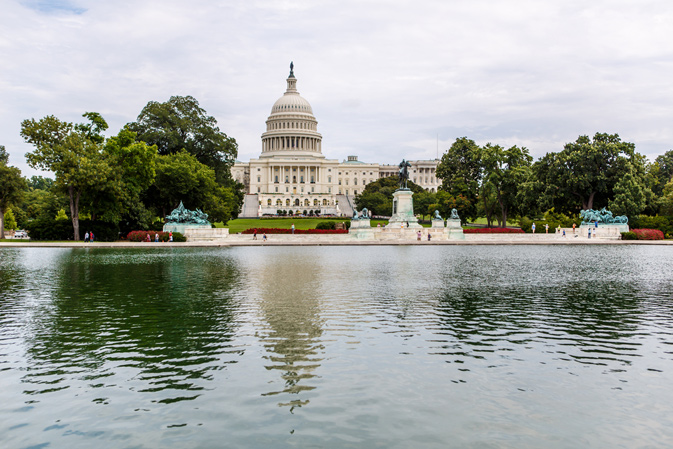WASHINGTON — In a victory for airlines and their workers’ unions, the House rejected consumers’ complaints and easily passed legislation Monday letting airline advertising emphasize the base price of tickets, before taxes and fees are added.
The bipartisan legislation would roll back federal regulations that since 2012 have required ads to most prominently display the full ticket price. Under the bill, the base price could be the figure most prominently shown in ads and ticket-selling websites as long as taxes and fees are displayed separately, such as in footnotes or pop-up ads.
The measure was approved by voice vote, with individual lawmakers’ votes not recorded. That process is used often for non-controversial bills, but it can also allow legislators avoid taking a public position on a touchy issue.
Groups representing airline passengers and companies that rely on corporate travel derided the bill’s name, the Transparent Airfares Act of 2014, as Orwellian. They said the measure’s enactment would return the country to an earlier era of misleading and confusing advertising.
“Their main goal is to be able to offer the public a low-ball price,” said Charlie Leocha, chairman of Travelers United, which represents people who travel.
But the airlines — backed by unions representing pilots, mechanics and flight attendants _ say including taxes and fees in their advertised prices hurts business and hides from consumers the extra costs that government imposes on air travel.
Showing the full price “can dampen demand for travel and ultimately cost even more jobs in an industry that has lost nearly one-third of its work force since 2001, typically resulting in reduced service to small and rural communities,” according to an April letter to lawmakers from Airlines for America, the industry’s chief trade group, and other airline and labour organizations.
Monday’s vote underscored the clout wielded by the alliance on this issue between the airlines and their employees’ unions, which often have a fractious relationship.
According to the nonpartisan Center for Responsive Politics, almost 60 per cent of the $2.2 million in political contributions since January 2013 from airline political committees and individual workers has gone to Republicans. Of the $3 million contributed by air transport unions, two-thirds has gone to Democrats. In addition, airlines reported having 213 lobbyists in Washington last year while unions had another 74.
Supporters say the measure would make it clear to fliers just how much of a ticket’s cost comes from federal taxes and fees.
“The rule effectively masks, I would argue hides, the current government-imposed taxes and fees on consumers,” Rep. Bill Shuster, R-Pa., chairman of the House Transportation and Infrastructure Committee, said during debate that lasted just 11 minutes.
Backers said that currently, $63 _ or 21 per cent of a typical $300 round-trip domestic ticket _ comes from government taxes and fees.
But Kevin Mitchell, chairman of the Business Travel Coalition, said that figure was purposely inflated by using a trip with multiple stops that maximized fees and taxes. He said a non-stop $388 flight from Philadelphia to Miami had taxes and fees totalling less than $48, or 12 per cent.
The only other speaker during Monday’s House debate was Rep. Peter DeFazio, D-Ore., who with Shuster sponsored the legislation. DeFazio mocked the current regulation’s requirement that the full price must be shown more prominently in advertising.
“Talk about the nanny state,” he said. “Give me a break. What do they think, Americans are idiots?”
Critics argued that under the existing regulation, airlines are free to display in their ads the taxes and fees that are added to ticket prices. Making it appear that the current regulations prevent that from happening is “a big lie,” said Mitchell, whose coalition represents travel managers from companies that rely on corporate travel.
So far there is no companion bill in the Democratic-run Senate. It is unclear whether the legislation has much chance of enactment in the dwindling months of the current Congress.
Sen. Robert Menendez, D-N.J., has introduced legislation that would do the opposite of the House measure. It would turn the current regulations into law, and double — to $55,000 daily — fines imposed for violating the requirement.
President Barack Obama has had several clashes with the airline industry over the years. The Transportation Department banned so-called tarmac strandings in which passengers were trapped inside delayed planes for hours. Other regulations let passengers cancel reservations within 24 hours without being penalized and require more disclosure about bag fees.
